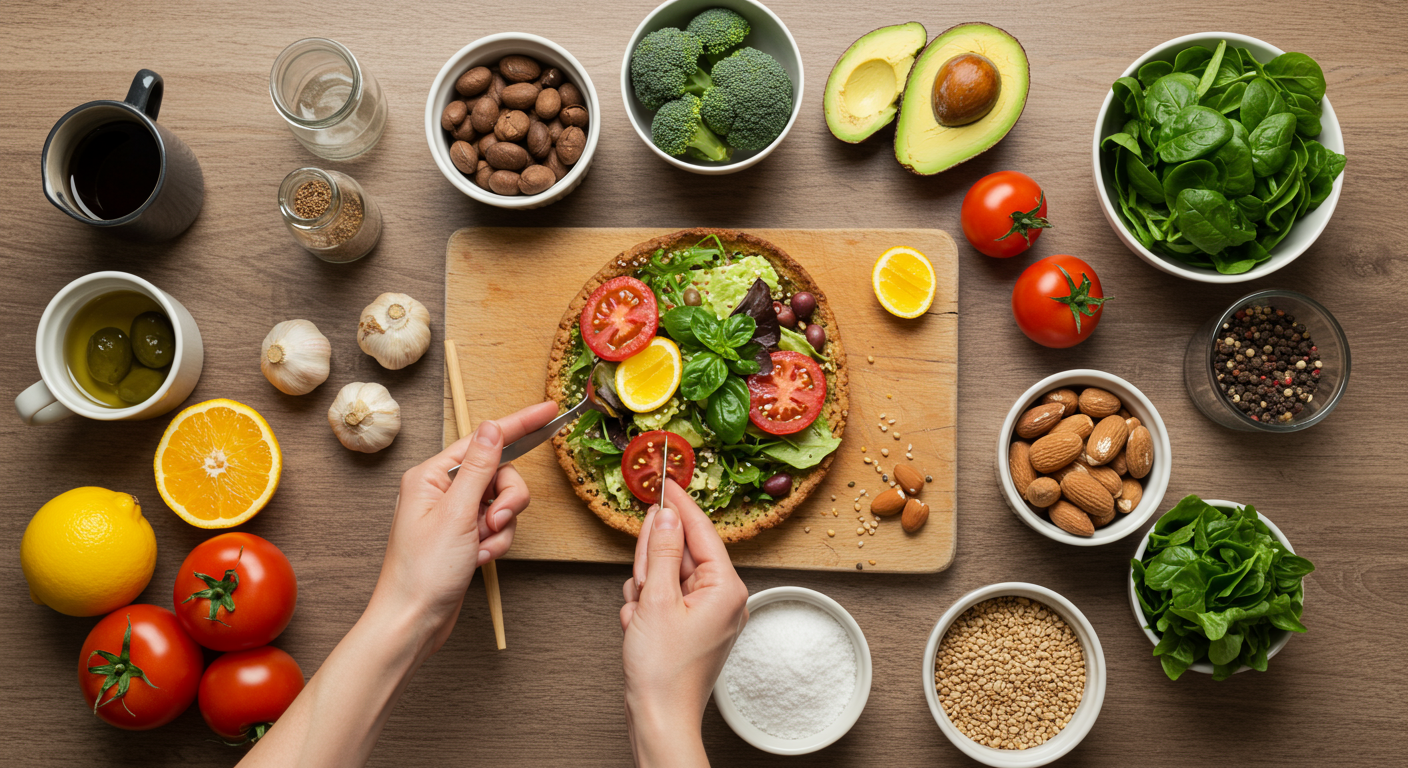Are you a vegan athlete looking to maximize muscle gain? It's absolutely achievable! This comprehensive guide dives deep into the world of vegan fitness, providing you with the knowledge and tools to build muscle, optimize your workouts, and fuel your body with plant-based power. Whether you're a seasoned vegan or just starting out, this guide is designed to empower you on your journey to a stronger, healthier you.

Deep Dive into Vegan Fitness for Experienced Athletes
As an experienced vegan athlete, you're already committed to a compassionate lifestyle. Now, let's take your fitness to the next level. This section focuses on advanced strategies, nutritional insights, and workout optimization to help you achieve your muscle-building goals.
Advanced Strategies and Insights
Building muscle as a vegan requires a strategic approach. It's not just about what you eat, but also when and how you train. Here are some key strategies:
- Prioritize Protein: Ensure you're consuming enough protein throughout the day. Aim for 0.7-1 gram of protein per pound of body weight. Distribute protein intake evenly across meals to maximize muscle protein synthesis.
- Strategic Meal Timing: Consume protein and carbohydrates within an hour after your workout to kickstart recovery and muscle growth. Pre-workout meals should include complex carbohydrates and moderate protein.
- Strength Training Focus: Prioritize compound exercises like squats, deadlifts, bench presses, and overhead presses. These exercises engage multiple muscle groups simultaneously, maximizing muscle-building potential.
- Progressive Overload: Consistently increase the weight, reps, or sets to challenge your muscles and promote growth. Track your progress and adjust your training accordingly.
Optimizing Your Vegan Nutrition for Muscle Gain
Nutrition is the cornerstone of muscle building. Here's how to optimize your plant-based diet:
- High-Protein Vegan Foods:
- Tofu and Tempeh: Versatile and complete protein sources. Tofu can be used in many recipes, and tempeh offers a slightly nutty flavor and firm texture.
- Lentils and Beans: Excellent sources of protein and fiber. Great for building meals that keep you feeling full.
- Edamame: A complete protein source with a delicious flavor.
- Vegan Protein Powder: Consider a blend of plant-based proteins (pea, brown rice, soy, etc.) to ensure a complete amino acid profile. See below for our recommendation.
- Quinoa: A complete protein that's also a complex carbohydrate.
- Seitan: Made from wheat gluten, seitan is high in protein and can be used in many ways.
- Meal Planning: Plan your meals in advance to ensure you're meeting your protein and calorie needs. Use a meal planning app or create a spreadsheet to track your intake.
- Supplement Smartly: Consider B12, creatine (vegan-friendly), and potentially a vegan omega-3 supplement.
- Hydration: Drink plenty of water throughout the day, especially before, during, and after workouts.
Case Study: Thriving on an Advanced Vegan Path
Meet Alex, a vegan bodybuilder who transformed their physique with a plant-based diet. Alex focuses on balanced meals, consistent training, and strategic supplementation. Alex's go-to meals include tofu scramble with veggies for breakfast, lentil soup for lunch, and a tempeh stir-fry for dinner. Alex uses Vegan Protein Powder after workouts. Alex's progress demonstrates the power of dedication and proper nutrition on a vegan diet.
Navigating Complex Vegan Challenges
- Meeting Calorie Needs: Muscle building requires a calorie surplus. Track your intake to ensure you're eating enough calories to support muscle growth.
- Digestive Issues: Some high-protein vegan foods can cause digestive discomfort. Experiment with different foods and cooking methods (e.g., soaking beans) to find what works best for you.
- Protein Sources Diversity: Diversify your protein sources to ensure you're getting all essential amino acids and a range of nutrients.
Integrating Advanced Vegan Practices
- Fasting and Training: Consider the timing of your meals and workout with your fasting schedule.
- Focus on Micronutrients: Eat a wide variety of fruits and vegetables to ensure adequate intake of vitamins and minerals.
- Listen to Your Body: Pay attention to how your body feels and adjust your training and diet accordingly.
Scaling Your Impact: Beyond Personal Choices
- Share Your Journey: Inspire others by sharing your experiences and successes. Document your progress on social media or create a blog to educate others.
- Advocate for Veganism: Support vegan businesses and organizations. Advocate for plant-based options in your community.
- Educate: Educate friends, family, and colleagues about the benefits of a vegan diet and lifestyle.
Expert-Level Vegan Living Insights
- Bioavailability: Understand the bioavailability of different nutrients and how to optimize absorption.
- Consider Professional Help: Consult with a registered dietitian or certified personal trainer who specializes in plant-based nutrition and fitness.